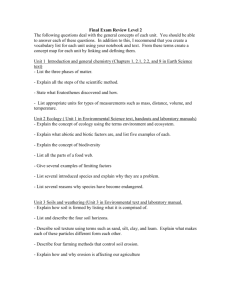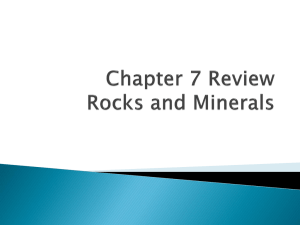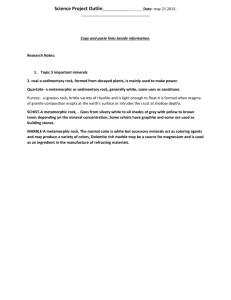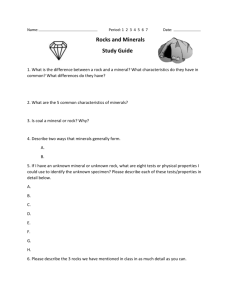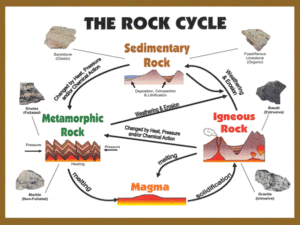What are metamorphic rocks
advertisement
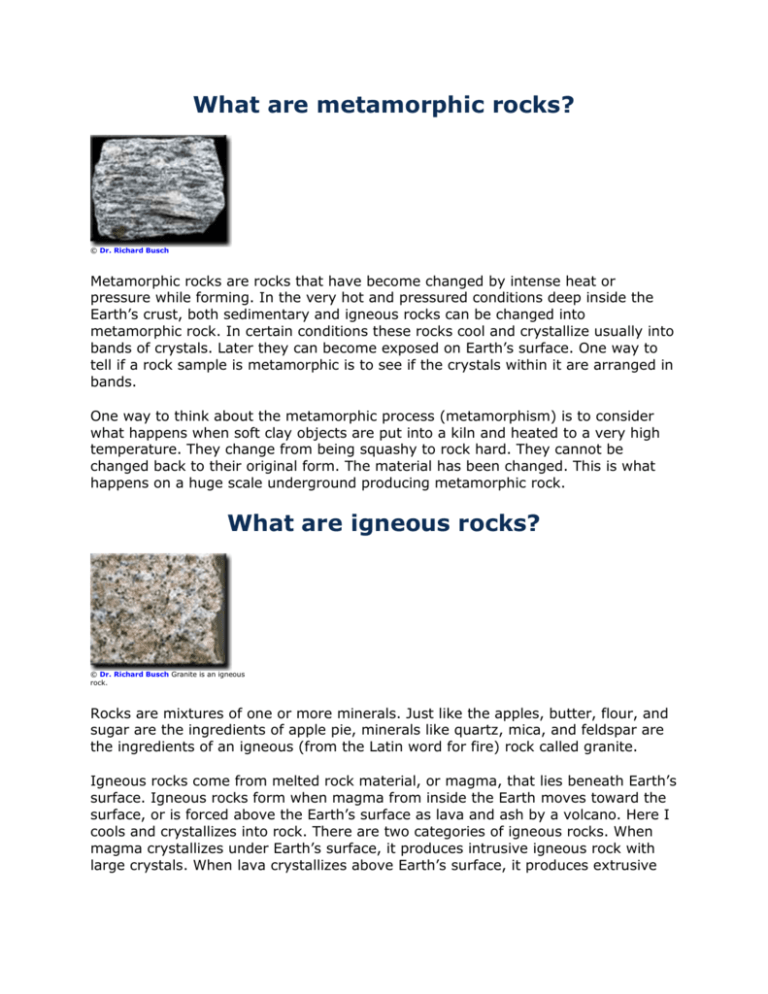
What are metamorphic rocks? © Dr. Richard Busch Metamorphic rocks are rocks that have become changed by intense heat or pressure while forming. In the very hot and pressured conditions deep inside the Earth’s crust, both sedimentary and igneous rocks can be changed into metamorphic rock. In certain conditions these rocks cool and crystallize usually into bands of crystals. Later they can become exposed on Earth’s surface. One way to tell if a rock sample is metamorphic is to see if the crystals within it are arranged in bands. One way to think about the metamorphic process (metamorphism) is to consider what happens when soft clay objects are put into a kiln and heated to a very high temperature. They change from being squashy to rock hard. They cannot be changed back to their original form. The material has been changed. This is what happens on a huge scale underground producing metamorphic rock. What are igneous rocks? © Dr. Richard Busch Granite is an igneous rock. Rocks are mixtures of one or more minerals. Just like the apples, butter, flour, and sugar are the ingredients of apple pie, minerals like quartz, mica, and feldspar are the ingredients of an igneous (from the Latin word for fire) rock called granite. Igneous rocks come from melted rock material, or magma, that lies beneath Earth’s surface. Igneous rocks form when magma from inside the Earth moves toward the surface, or is forced above the Earth’s surface as lava and ash by a volcano. Here I cools and crystallizes into rock. There are two categories of igneous rocks. When magma crystallizes under Earth’s surface, it produces intrusive igneous rock with large crystals. When lava crystallizes above Earth’s surface, it produces extrusive igneous rock with crystals that are too small to see. Igneous rocks are very hard and made of interlocking crystals. What are sedimentary rocks? © Dr. Richard Busch Sandstone is a sedimentary rock. Sediment is made up of solid, loose pieces of rocks (in the form of sand, silt, clay, and gravel), or the remains of living things found at the surface of the Earth. Sediment is material that has been eroded and deposited by wind, running water, waves, and ice. Sediment can also form from material left behind by the evaporation of seawater, or the settling of the remains of animals and plants in oceans, lakes, and swamps. In certain conditions, and over a very long period of time, sediment can become compacted and cemented into sedimentary rock. Sedimentary rock is often found in layers. One way to tell if a rock sample is sedimentary is to see if it is made from grains.
